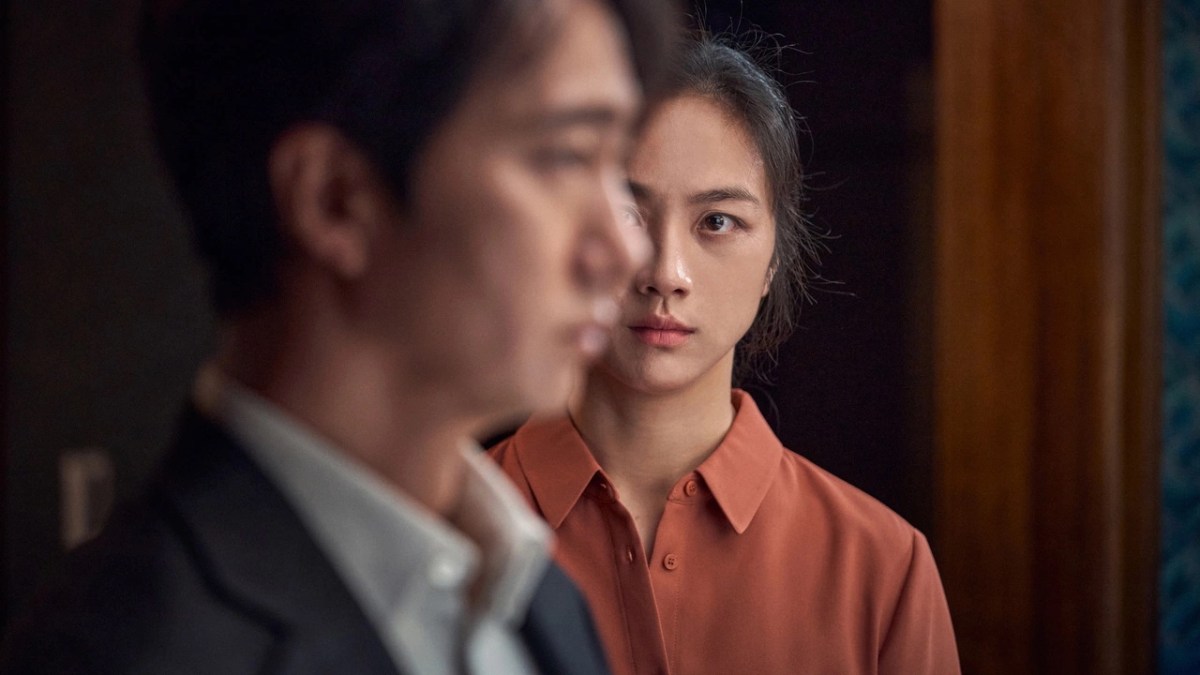In Park Chan-wook’s latest film, Decision to Leave, there are moments that can only be described as dangerously tender. The touch of hands, the sharing of chapstick, a knowing glance – these are small moments of intimacy that ultimately add up to create the devastatingly romantic love story at the heart of the film. Like all great film noirs, the romance between Detective Hae-jun (Park Hae-il) and prime suspect in her husband’s death, Seo-rae (Tang Wei) is stained by melancholy. Hae-jun has a wife, and obligations to fulfill as a head investigator in his department, and feelings like the ones he develops for Seo-rae risk clouding his judgment. Seo-rae is both a grieving widow and a potential murderer. The pair is a match made in noir heaven.
Anyone familiar with the genre knows that feelings, even ones with as pure intentions as love, can cross over into something extreme quickly. The yearning between Detective Hae-jun and Seo-rae rides the line between love and obsession throughout the film, and yet you can’t help but be moved by their growing affection for each other. You almost forget that the reason they met in the first place was because of a murder that one of them might have committed, but therein lies the film’s greatest work. Like the ocean, which is prominently featured throughout Decision, it pulls you in until you’re just as consumed as our main characters – for better or worse.
The sea is a beautiful and all-consuming thing, and like love (or obsession) it has the power to destroy. The central tension of the movie then becomes whether the very force that’s drawing them together will destroy Hae-jun and Seo-rae. I won’t answer that here, but I will say that on the flip side of destruction, the ocean can also be a place of release. During the moments we spend by the sea in this film, I thought of a quote from Alfonso Cuarón’s Y tu mamá también: “Life is like foam, so give yourself away like the sea.” Love often demands the same of us – to give ourselves away in the service of others, to surrender no matter the outcome. We never know if it will end well, but we do it anyway. Hae-jun and Seo-rae give themselves away to each other throughout the film, and it’s only by the end that we realize just how much they’re willing to give and how far they are willing to go.
Symbolism aside, Decision to Leave is a finely crafted film, with stellar performances from Park Hae-il (charming, and perfect as a detective torn between emotions and duty) and Tang Wei (also perfectly cast, lovely with a depth that’s just below the surface). The chemistry between the two leads is necessary to make the story work, so it’s a great thing that the chemistry between the two is tangible throughout. While more subdued than some of his previous films, there is still some violence and shocking imagery that fans of Director Park’s work will be familiar with. There is also plenty of clever editing, a sweeping soundtrack, and so much meaning to take in as well. It’s a film that’s more than worthy of surrendering to.
Great
Decision to Leave is a finely crafted film, with stellar performances from Park Hae-il (charming, and perfect as a detective torn between emotions and duty) and Tang Wei (also perfectly cast, lovely with a depth that’s just below the surface).
Decision to Leave

